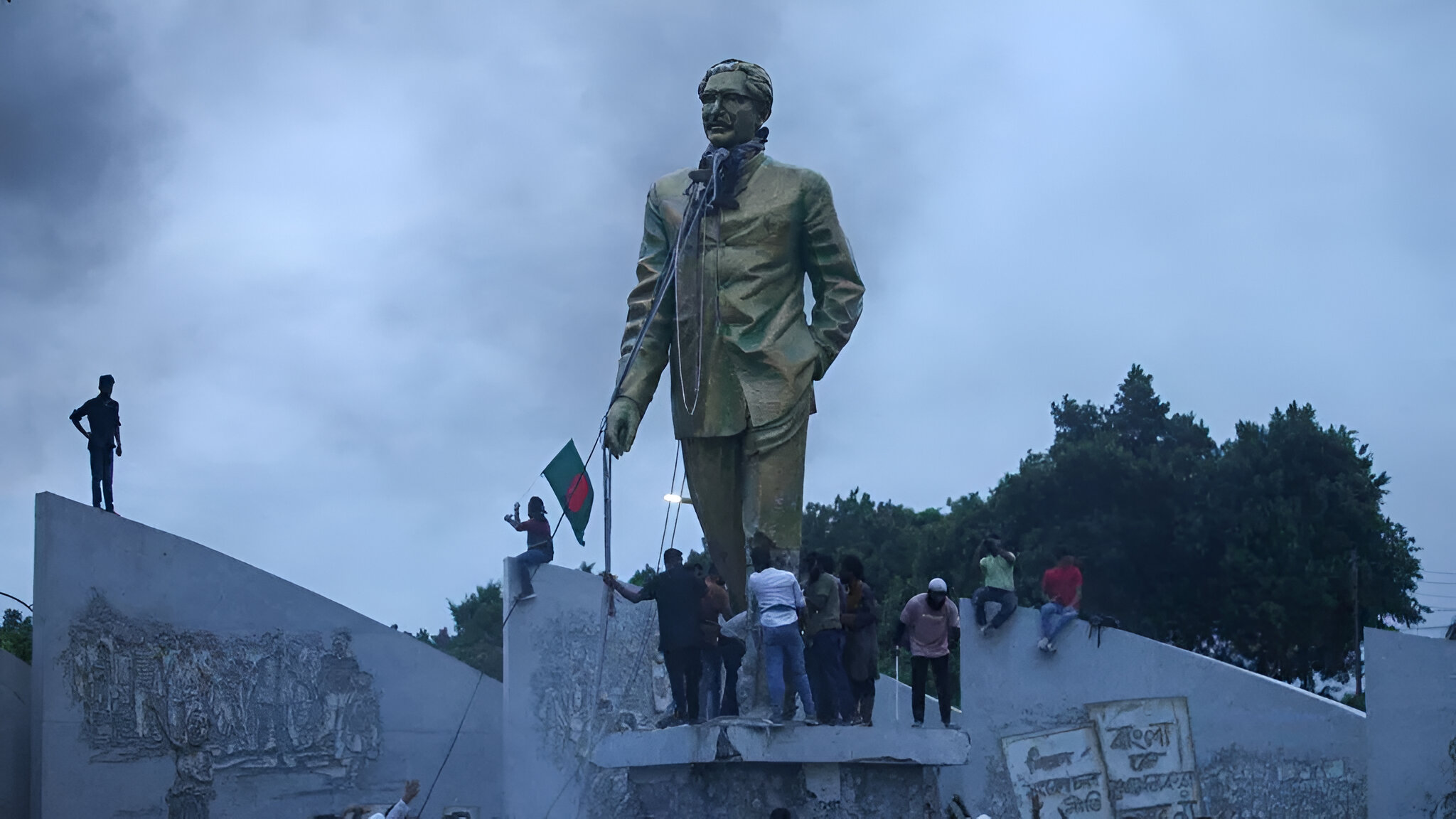A statue of Sheikh Mujibur Rahman, the father of Ms. Hasina, was attempted to be destroyed by demonstrators.
- byAdmin
- Aug 5, 2024
- 1 year ago

An temporary administration will be constituted, Waker-uz-Zaman announced in a televised speech on Monday afternoon. Insuring that a "solution" will be found by the end of the day, he stated that he would be meeting with President Mohammed Shahabuddin.
The leader of the army claimed to have already held conversations with the opposition political groups in the nation, but he did not specify who will lead the new administration. He told Bangladeshis that "all killings, all injustice" would be "examined" and he asked them to have faith in the army.
It was observed that protesters were moving furniture out of the prime minister's home.
Government facilities, including police headquarters, were attacked and set on fire in Dhaka. A statue of Ms. Hasina's father, independence leader Sheikh Mujibur Rahman, was targeted by demonstrators.
Units of the army and police were stationed all throughout the city. Before being resumed, mobile phone service was apparently interrupted for a few hours.
On Monday, at least 20 deaths were recorded.
With her Awami League and the Bangladesh Nationalist party having long been rivals, Ms. Hasina's departure creates a void in Bangladeshi politics.
There have been multiple military takeovers in the nation; the most recent was in 2007.
Senior economist Debapriya Bhattacharya of the Dhaka-based Centre for Policy Dialogue told the BBC that although there had been "euphoria" in the streets following the resignation, attacks on the Hindu minority had intensified, presenting an urgent challenge to the new government.
"There's a perception that India fully supports Sheikh Hasina's administration. Demonstrators fail to distinguish between Hindu residents of Bangladesh and those in India, which has already resulted in attacks on individuals and temples."There is currently a power vacuum and no one to enforce law and order. Religious minorities will need to be protected by the next administration."
Her supporters declared that Ms. Hasina would not go back into politics in the nation. Since taking office in 1996, the former prime minister has served in that capacity for a total of 20 years.
She is in her late 70s, according to her son Sajeeb Wazed Joy, who spoke with the BBC's Newshour program. She feels so let down that, after all of her efforts, a minority has decided to rebel against her, and I believe she is finished.
"My family and I are done."
Opponents claim that Ms. Hasina's reign was marked by extrajudicial killings, forced disappearances, and the repression of opposition leaders and government critics.
However, Mr. Wazed, who was also the prime minister's technical advisor, upheld his mother's record.
Bangladesh was viewed as a failed state when she came to power, but in the following 15 years, she has turned it around. It was an impoverished nation; "it was regarded as one of Asia's rising tigers until today."
Post a comment
Hot Categories
Recent News
Best Travel Discounts 2025: Cheap Flights, Hotels & Packages in One Place
- Aug 26, 2025
- 3 months ago
Luciano Spalletti and Italy at a crossroads following the Euros Title Defense debacle
- Jun 30, 2024
- 1 year ago
Daily Newsletter
Get all the top stories from Blogs to keep track.



0 comments